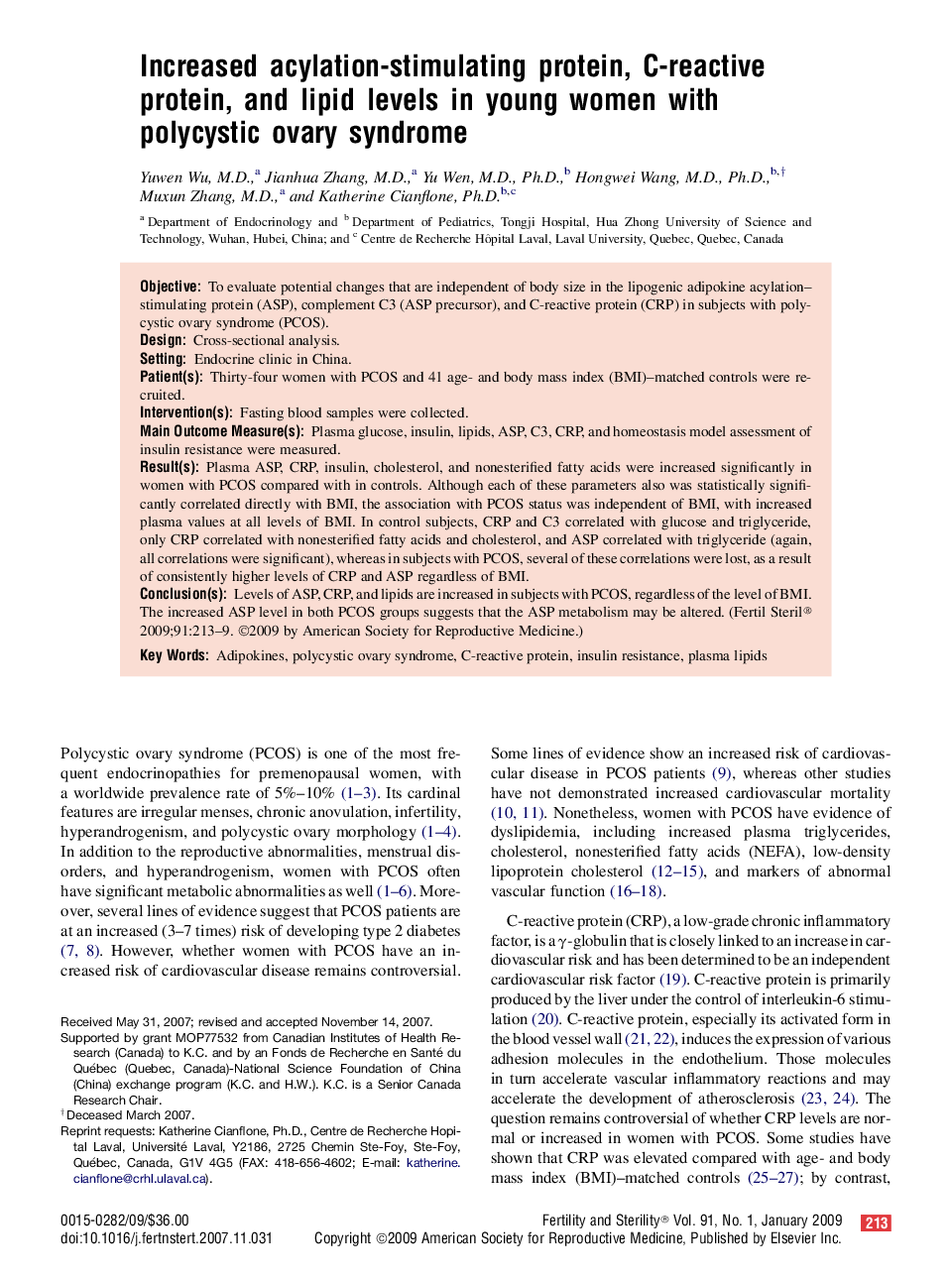| Article ID | Journal | Published Year | Pages | File Type |
|---|---|---|---|---|
| 3937070 | Fertility and Sterility | 2009 | 7 Pages |
ObjectiveTo evaluate potential changes that are independent of body size in the lipogenic adipokine acylation–stimulating protein (ASP), complement C3 (ASP precursor), and C-reactive protein (CRP) in subjects with polycystic ovary syndrome (PCOS).DesignCross-sectional analysis.SettingEndocrine clinic in China.Patient(s)Thirty-four women with PCOS and 41 age- and body mass index (BMI)–matched controls were recruited.Intervention(s)Fasting blood samples were collected.Main Outcome Measure(s)Plasma glucose, insulin, lipids, ASP, C3, CRP, and homeostasis model assessment of insulin resistance were measured.Result(s)Plasma ASP, CRP, insulin, cholesterol, and nonesterified fatty acids were increased significantly in women with PCOS compared with in controls. Although each of these parameters also was statistically significantly correlated directly with BMI, the association with PCOS status was independent of BMI, with increased plasma values at all levels of BMI. In control subjects, CRP and C3 correlated with glucose and triglyceride, only CRP correlated with nonesterified fatty acids and cholesterol, and ASP correlated with triglyceride (again, all correlations were significant), whereas in subjects with PCOS, several of these correlations were lost, as a result of consistently higher levels of CRP and ASP regardless of BMI.Conclusion(s)Levels of ASP, CRP, and lipids are increased in subjects with PCOS, regardless of the level of BMI. The increased ASP level in both PCOS groups suggests that the ASP metabolism may be altered.
